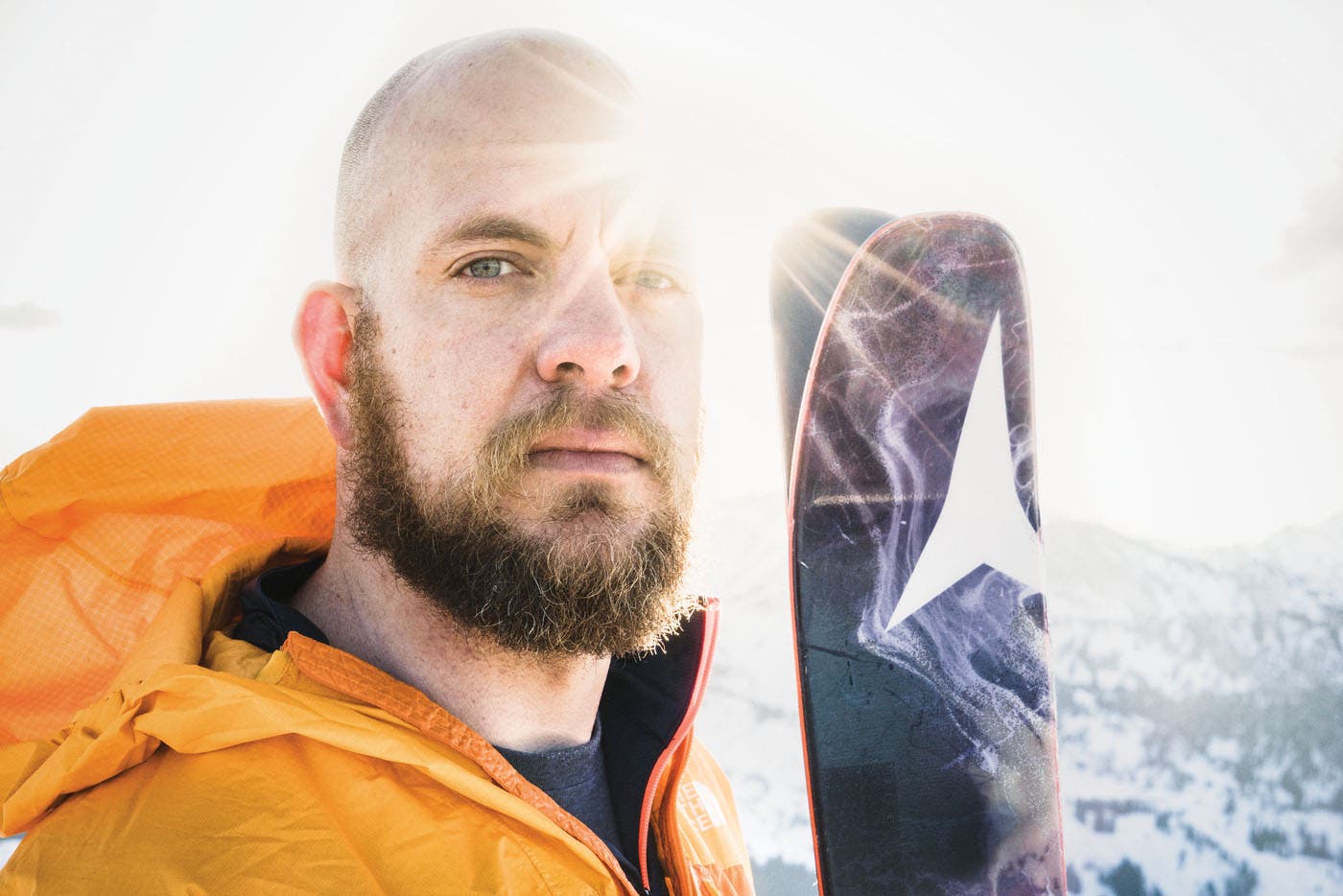Truth: Stacy Bare

Louis Arevalo
Stacy Bare spent four years as a military intelligence officer and counterterrorism team chief in Bosnia. He cleared land mines in Angola and Abkhazia in 2004–05 and then was recalled a few years later for a year in Iraq as a team leader in civil affairs. But after living through all that, it was the coming-home part he almost didn’t survive—Bare suffered from acute and nearly fatal post-traumatic stress. Then he discovered skiing and climbing, and with them, freedom. Now he’s one of National Geographic’s Adventurers of the Year (2014) and a director of the Sierra Club Outdoors.
—

I actually learned how to ski in Bosnia. I had this lieutenant colonel who would call up my boss and say, “I need Captain Bare for a mission,” and he would always tell him it was top secret so he couldn’t give any details. The first time I had no idea, so I walked outside and he just yelled, “Get in the car!” and then he turned to me and said, “All right, we’re going skiing today.” After getting out, I moved to Salt Lake with my then girlfriend just for one ski season. We ended up getting married, buying a house, and having a baby in the middle of the last great storm cycle of the season. We never left.
Just being outdoors helped me so much. It becomes an identity, who you are. I’m really proud to be a veteran, but I’m also a skier, I’m a climber, I’m a husband, I’m a father, I’m an environmentalist. And when you’re part of an institution, your identity massively changes. As veterans, so much of our lives have been tied up in the military, and then who are you after you’re done? Time outside pulled me into the now and gave me a new identity. One of the biggest things I worried about coming back was, why did I live and other people die? What am I going to do for the rest of my life? And you just don’t worry about those things when you ski. You’re just there, in that moment.
My Make Adventure, Not War project is a personal goal to go back and climb and ski in all the places where I went to war or to clean up after war. First, it’s a healing process. In each of the places I was deployed, I didn’t feel my time was finished there, and this is an opportunity to go back and rewrite my own story. The other big push is to change people’s images of these places, that they’re still beautiful places full of beautiful people that just want the same things we do. We as veterans have a responsibility to push for opportunities where we can minimize war.
These trips are beautiful. In Angola, we would turn some tunes on in the villages and all the kids would start dancing. And everyplace where I can go to bed and know I’m going to ski the next morning, I’m more excited than when I was six years old and it was Christmas Eve. It makes me want to live every day like it’s closing day.
I think my biggest advice to anyone, regardless of what you’re doing, if you’re making a big life transition, is to spend time outside. Find what gives you happiness outside. Your path might be a little bit different, but be willing to try, reach out and ask for help. Things get better over time; just keep getting outside. Find what you love, and structure your life around it.
I spoke at a college a few years ago, and I don’t think I’ll ever be invited back. A kid was wondering about the future and saying, “I don’t know what I want to do.” And I said that college is always going to be here; drop out, go ski. You can always come back. If you’re not here, really here, go follow your passion. Too often we think we have to go all-in, but when you’re young, do what you love.